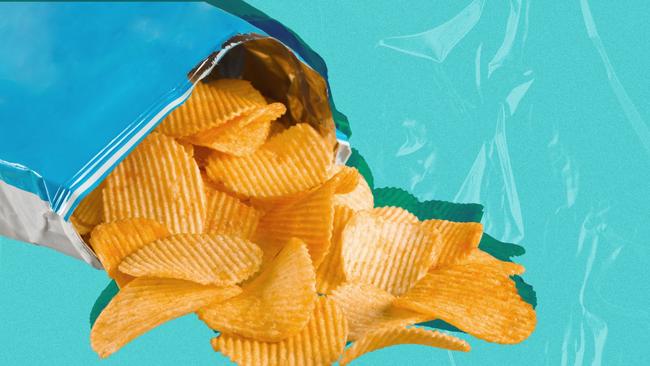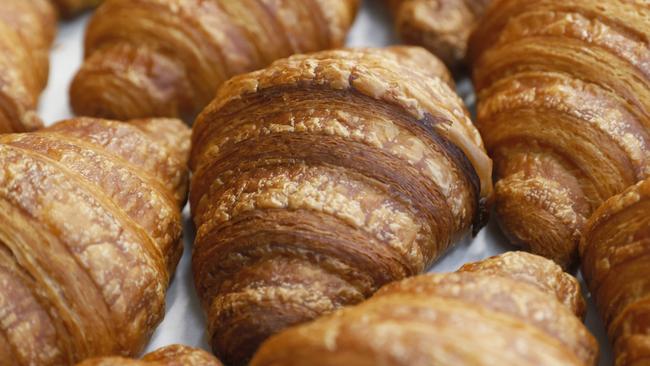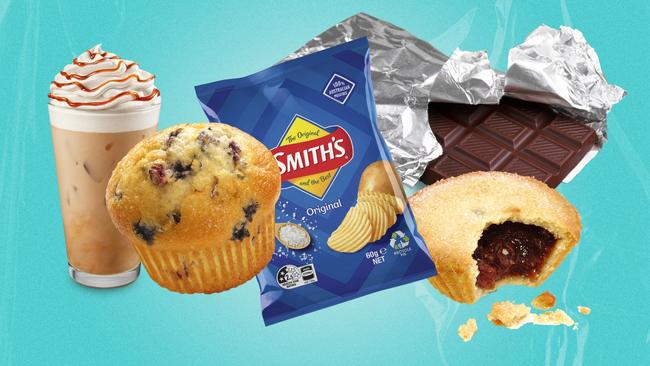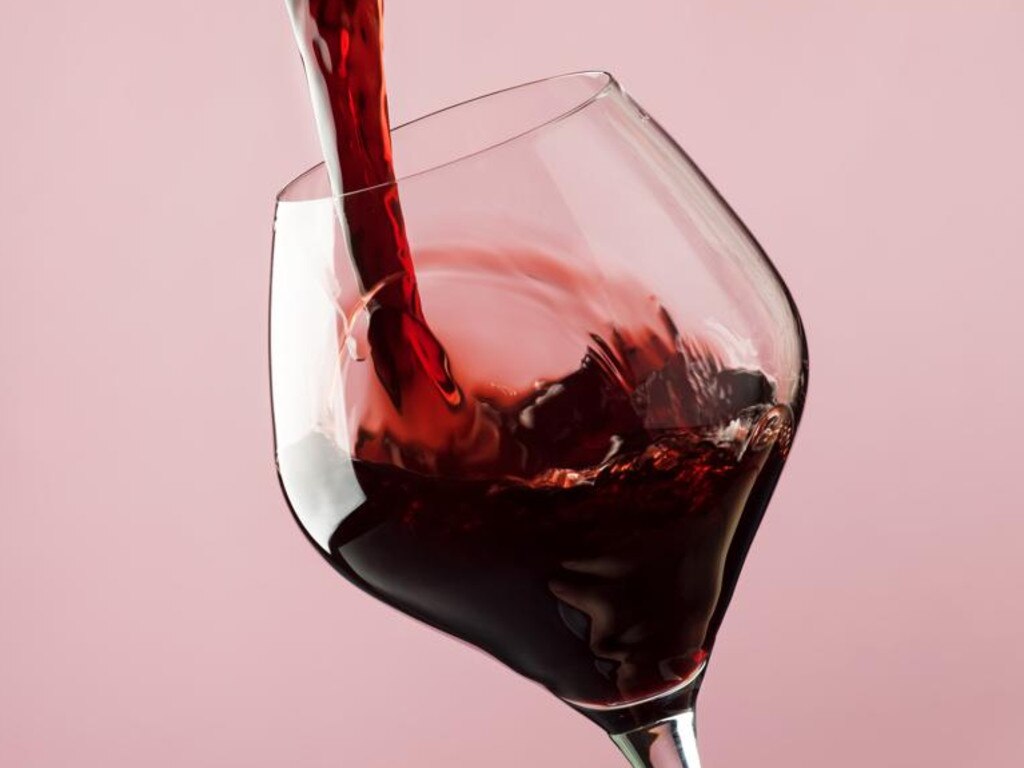Hold the chips! Snacks make you more stressed
When your stress levels escalate, your natural response might be to reach for a pie, chocolate or a bag of chips. Hold fire: it could affect far more than your waistline.

When your stress levels escalate, your natural response might be to reach for something comforting to eat, but as much as you may fancy a mince pie, a chocolate bar or a bag of crisps, hold fire. It could affect far more than your waistline.
In two recent studies, researchers from the University of Birmingham have discovered that eating high-fat foods when you are feeling frazzled triggers a cascade of unwanted health reactions. Stress is already known to cause cardiac changes in the body - our heart rate and blood pressure rise almost instantly, for example, when we feel under pressure.
“These responses are totally normal and in healthy people blood vessels dilate nicely, which reduces the pressure on the vessel walls,” Rosalind Baynham, a PhD researcher and the lead author of the new studies, says. “In people at risk of heart disease, their blood vessels are not as elastic and so there’s an impairment in endothelial function - or how well their blood vessels dilate - during and following stress, and that means blood isn’t getting where it needs to be, such as to the heart and brain.”
For the first part of their investigation, Baynham and her colleagues wanted to find out whether a moderate intake of fatty foods, similar to the amount many of us might consume when feeling stressed and anxious, has an effect on vascular function in otherwise healthy young individuals. For the trial, participants - most of whom were in their twenties and thirties - were asked to eat two Tesco Finest all butter croissants containing a total of about 56.5g of fat before completing an eight-minute mental stress task.
Jet Veldhuijzen van Zanten, a professor of biological psychology at Birmingham and one of the research team, says the test entailed the participants doing progressively more difficult mental arithmetic. “They had to add up lists of numbers within a time limit while watching themselves on a screen and being assessed by an invigilator,” Van Zanten says. “It’s designed to simulate the kind of stresses we all experience in everyday life, such as time pressure, punishment and evaluation.”

Results published in the journal Frontiers in Nutrition showed that the two croissants caused a sharp and potentially harmful drop in the healthy elasticity of blood vessels in the participants who had no history of heart disease or other health issues.
“Previous researchers have shown that a 1 per cent drop in vascular function leads to a 13 per cent increase in the risk of heart disease,” Baynham says. “But eating the high-fat foods we provided during a period of mental stress reduced blood vessel function by 1.74 per cent and, importantly, we also found that this impairment lasted longer when people ate the croissants compared to a standardised lower-fat snack with the same number of calories.” Tests showed that artery elasticity was still not back to normal even 90 minutes after the maths trauma was over.
It isn’t only the arteries that suffer when we indulge. For a second paper, published in the journal Nutrients, the team looked at how fatty snacks affected brain function after the stress-inducing number tests. They found that after eating the fat-laden croissants, oxygen flow was reduced to the prefrontal cortex part of the brain that regulates our thoughts, actions and emotions.
“There was a 39 per cent reduction in the amount of oxygenated blood sent to the brain during stress after the croissants compared to the lower-fat snack,” Baynham says. “We didn’t test whether this affected cognitive function and that will be the subject of our next study, but it is reasonable to expect that it might.” Both during and after the stress tests, the participants also experienced plummeting mood, something that didn’t occur with the control meal. And that switch in state of mind could make people feel more stressed than they were to start with.

Catarina Rendeiro, an assistant professor in nutritional sciences and another of the authors, says that often we don’t realise how close we come to exceeding the recommended daily limit for fat intake when reaching for snacks that are not particularly filling. Government guidelines suggest that men eat no more than 95g of total fat a day, no more than 30g of which should be the saturated animal variety, and women no more than 70g of fat, of which no more than 20g should be saturated. “Two butter croissants provide a sizeable chunk of that total,” Rendeiro says. “And the kinds of foods we think are comforting when we are stressed are usually the highest in fat.”
A regular bag of crisps contains 7.7g of fat, a Twix 12g and a blueberry muffin 14.6g. Attempt to soothe your soul with a large gingerbread latte made with whole milk and you ingest 23.5g fat, a mince pie provides 9.9g and a hot chocolate with cream 15.7g.
While a fortunate few eat less when stressed, there’s evidence that many people’s brains are programmed to crave calories in the form of fat and sugar. Neuroscientists at the Garvan Institute of Medical Research in Sydney showed recently that this combination of calorie-dense “comfort” foods and stress triggers changes in the brain that increase cravings for even more sweet, highly palatable and fatty food.
Herbert Herzog, an associate professor in medicine and health, found that stress overrides the brain’s natural response to satiety, prolonging the temptation to keep tucking in. “We showed that chronic stress, combined with a high-calorie diet, can drive more and more food intake as well as a preference for sweet, highly palatable food, thereby promoting weight gain and obesity,” Herzog said of his findings, published in the journal Neuron.
Scientists are only beginning to unravel the complex relationship between food and stress. Although they didn’t look at specifically which foods can improve the body’s responses to stress, they did note that choosing tea, cocoa, apples, berries and grapes, all of which are rich in the plant compounds polyphenols, when under pressure can prevent the drop in artery function.
“What we now know is that the food choices we make when we are anxious and under pressure can either exacerbate or protect [against] the effects of stress on the cardiovascular system and the brain,” Randeiro says. “The impact of even a small high-fat snack during stressful times should not be underestimated and we should all try to remember that when we go for these sorts of foods for comfort reasons, they can affect our health - and once we have eaten them, we don’t feel better but worse.”
What else increases stress?
Alcohol
Drinking small amounts of alcohol is believed to reduce the negative emotional effects of stress and anxiety. However, drinking more could backfire. In one small study published in the American Journal of Physiology: Heart and Circulatory Physiology, a small glass of red wine or the same volume of other types of alcohol helped blood vessels to become more “relaxed” or dilated, which reduced stress on the heart. But two or more drinks rapidly increased the heart rate, the amount of blood pumped out of the heart and the stress on the sympathetic nervous system.
Another study, at the University of Chicago, suggested that while small amounts of alcohol might relieve stress and reduce the release of stress hormones such as cortisol, they prolong the feelings of tension produced by the stress and can trigger people to drink more in the mistaken belief that it is helping them to calm down.
The overriding message? One drink is always enough if you’re stressed.
Salt
Beware crisps, nuts and canapes because too much salty food will make you feel more stressed than usual, according to research by Matthew Bailey, a professor of renal physiology at the University of Edinburgh’s Centre for Cardiovascular Science. Results of his study on animals, published last year in the journal Cardiovascular Research and funded by the British Heart Foundation and Kidney Research UK, suggested that a high-salt diet sends levels of stress hormones soaring by 75 per cent.
“This study tells us that high salt in our food changes the way our brain handles stress,” Bailey said.
Sugar
It’s best to steer clear of sweet treats too. Researchers from the University of Warwick, Humboldt University of Berlin and Lancaster University reviewed 31 published studies involving almost 1,300 adults to determine whether seeking solace in sugary foods will help to make you feel better. The conclusion of their paper in the journal Neuroscience & Biobehavioral Reviews was that sugar has no positive effect on mood and consuming lots of it can exacerbate your stress rather than relieve it. “If anything, sugar will probably make you feel worse,” the researchers wrote, after identifying that sugar-eaters felt more tired and less energetic.
The Times




